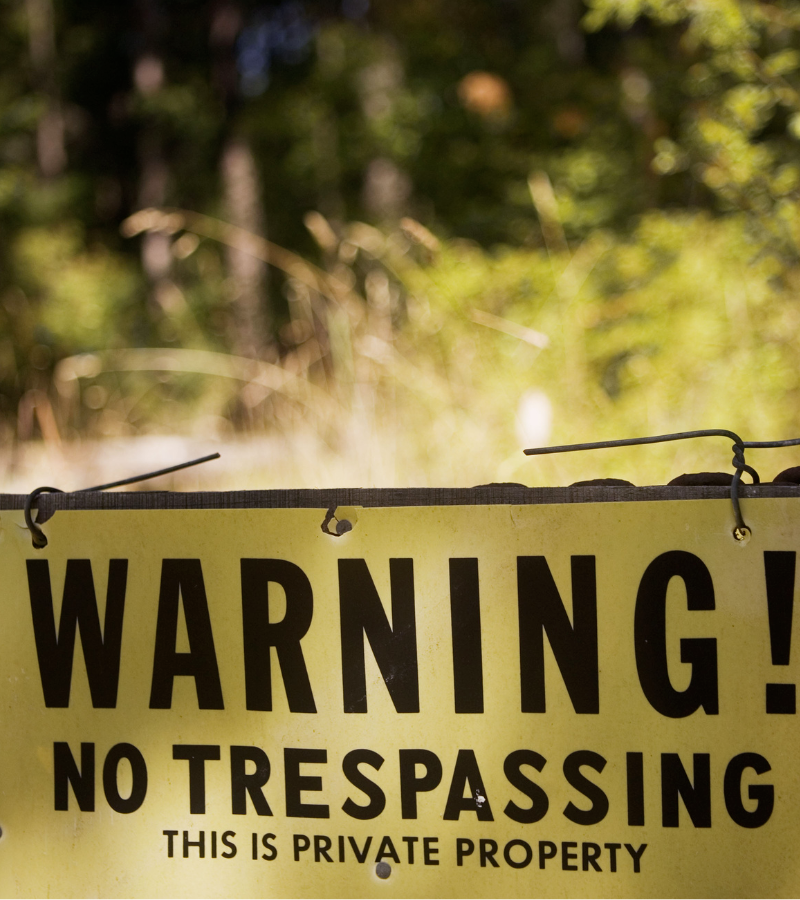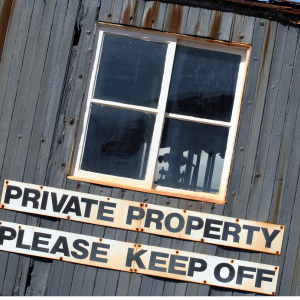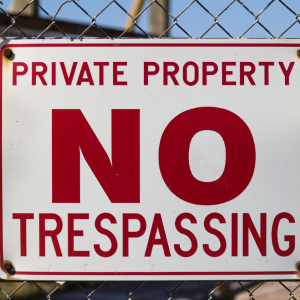
Understanding Squatters Rights In Michigan: Laws And Regulations
The real estate market in Michigan has been much discussed and misinterpreted regarding squatters’ rights. Squatters live on someone else’s land without permission or legal ownership.
These problems often occur when a building is abandoned or left empty for a long time. Michigan has laws and rules that protect squatters’ rights, and property owners and people who want to squat need to be aware of them.
Adverse possession is a legal theory that says squatters can claim property ownership if they meet certain conditions, like living in public for at least 15 years. Also, squatting is against the law because it is against trespassing laws to enter or stay on someone else’s land without permission.
Both sides need to be aware of these rules so that there are no legal issues with squatters’ rights in Michigan’s real estate market.
We buy probate properties in all counties and cities in Michigan, including Detroit, Sterling Heights, Ann Arbor, Southfield, Troy, Livonia, and Dearborn.
Exploring The History Of Squatters Rights In Michigan
There has been much debate about squatters’ rights in Michigan’s real estate market for many years. The idea of squatters’ rights goes back to the state’s early days when a lot of land and few people lived on it.

The Homestead Act of 1862 allowed people to own land if they lived on it and made improvements for a certain amount of time. This rule was intended to encourage people to move to and build in the state.
But as time went on, more and more people squatted because they took advantage of legal flaws and moved into empty or abandoned homes. This caused arguments and court cases about property rights and who should own what.
Because of this, Michigan has seen a lot of cases involving squatters’ rights, with different outcomes based on the facts and how the law is interpreted.
The Process Of Acquiring Squatters Rights In Michigan
In Michigan’s real estate market, squatters’ rights, also called “adverse possession,” have caused a lot of debate. This legal idea says that someone can claim ownership of a place if they have lived there for a certain amount of time and met certain conditions.
Getting squatters rights in Michigan can be a very complicated process. First, the person must prove that they have lived in the property continuously and publicly for at least 15 years.
They also have to show that they had the property in a hostile way, which means they didn’t have the owner’s permission or agreement. In addition, they must show that they paid all taxes on the land during this time and that no one else lived there simultaneously.
Lastly, they need to go to court and file a case to quiet title. They will also need proof of living on the property illegally. After meeting these requirements, a person can only get squatter rights in Michigan’s real estate market.
Navigating Landowner-squatter Disputes In Michigan
Land issues between owners and squatters are becoming a growing problem in the real estate market in Michigan.

There are increasingly many squatters living in empty or abandoned homes, so everyone needs to know their rights and legal choices.
Some might say that squatters have no legal rights, but some rules prevent them from being evicted immediately. Landowners, on the other hand, can take action and get their land back.
Even though it can be tricky and complicated, knowing the laws and processes can help settle disagreements more quickly and easily.
Protecting Your Property Against Squatters: Tips For Michigan Residents
People who live in Michigan and own land may be worried about the threat of squatters, who illegally live on and claim ownership of an empty or abandoned property. If you want to keep squatters from living on your land, you should know what the law says about their rights in Michigan’s real estate market.
There are rules in some states that give squatters certain rights, but Michigan does not have a formal law that deals with them. However, there are still things you can do to keep squatters from living on your land.
Some of these are regular inspections and maintenance on your property, clear signs that say who owns the land, and immediately telling the police about any suspicious activity or unauthorized entry. Seeking advice from a real estate lawyer can also help you protect your property rights in Michigan against possible squatting situations.
Individuals in Michigan can protect their homes from squatters by being proactive and knowledgeable about the rules and resources that are available to them.
Common Misconceptions About Squatters Rights In Michigan
Many people misunderstand whether squatters’ rights are allowed in Michigan’s real estate market. They often think squatters have the same legal rights as tenants, which is untrue.

But this is not the case. If you squat in Michigan, you are breaking the law and are not protected by tenant rules.
One more myth is that a renter gets to keep the property if the owner doesn’t get rid of it within a certain time. This is also not true because a squatter can’t just take ownership by hostile possession; they must follow certain legal steps.
A lot of people also think that squatters should be able to live in empty or abandoned homes without getting in trouble. But this isn’t true; squatting on empty or abandoned homes is still against the law and can lead to criminal charges.
People who own property and might want to squat need to know these myths and the real rules about squatters’ rights in Michigan’s real estate market.
How To Legally Evict A Squatter In Michigan
Squatters’ rights have been a highly debated issue in Michigan’s real estate market. Some say that people who live in abandoned homes should be protected, while others say that property owners should be protected. But it’s still unclear if squatters’ rights are allowed in Michigan, and people often get them wrong.
If you own land, you should know your rights and the formal steps to eliminate a squatter and keep your land. In Michigan, a squatter can be kicked out through a formal process or by showing that they don’t meet the standards for squatters’ rights.
To ensure that your eviction goes smoothly and protects your property rights, you must follow all legal steps and complete all the necessary paperwork.
The Impact Of Covid-19 On Squatters Rights In Michigan
The Michigan real estate market has undergone major changes because of the COVID-19 outbreak, especially regarding squatter rights.

There have been more cases of squatting across the state because many people have trouble paying their rent or bills.
Because of this, property owners are having difficulty getting squatters to leave their homes because the government has stopped many evictions. This has made it hard to say whether or not squatters’ rights are legal in Michigan. Some say the law shouldn’t protect them, while others say they should be because they are renters.
The ongoing fight between property owners and renters is made more difficult by the unstable economy and the fact that laws about COVID-19 relief measures are always changing. Both sides must know their legal rights and duties to handle this complicated situation well.
Pros And Cons Of Allowing Squatters On Your Property In Michigan
Anyone who owns property or might squat on someone else’s should know the pros and cons of letting squatters stay on your Michigan land. In some cases, letting squatters stay on a property could bring in some money for the owner because the squatters might have to pay rent or other fees.
Having people live on the land can also deter thieves and vandals. However, there are some major problems to consider as well.
Squatters can ruin property or do illegal things, which could get the owner in trouble with the law. Getting squatters to leave a property can also be hard and take a lot of time, especially if they have lived there for a long time.
Finally, it is important for both sides to carefully consider the possible pros and cons of letting squatters live on a property in Michigan’s real estate market before making any choices.
Key Differences Between Adverse Possession And Squatters Rights In Michigan
When it comes to Michigan real estate, adverse possession, and squatters rights are not the same thing. Adverse control is a legal term for someone who uses someone else’s property continuously and openly for a certain amount of time and then takes it back.

This can include taking care of the land, paying taxes, and claiming ownership in public. Squatters rights, on the other hand, mean living on someone else’s land without their permission or legal right to do so.
Adverse possession can lead to full ownership of a place, but squatters’ rights do not give ownership. Instead, they protect people from being evicted temporarily. Also, there are clear rules about what needs to be done for adverse possession to be allowed, but there aren’t as many rules about squatters’ rights.
It is important for property owners and people who want to take control of property through adverse possession or protect their occupancy through squatters rights in Michigan to understand these differences.
The Role Of Local Government In Regulating Squatters In Michigan
Many laws in Michigan cover squatters’ rights in the real estate market. Adverse possession, which means taking ownership of a property by living on it continuously and openly, is legal in Michigan, but strict rules and limits apply.
Local governments are important for controlling squatters because they enforce building codes and zoning rules that prevent people from illegally living on properties. In addition, local governments can kick out squatters and take formal action against them if necessary.
Property owners and people who might want to squat should both know the rules set by the local government so that they don’t get in trouble with the law.
Exploring The Grey Areas Of Squatters Rights: What Constitutes Trespassing?
This has been going on for a long time, making it hard for Michigan’s real estate market. Adverse possession is a legal term for taking ownership of property by living on it for a long time in a way that is obvious to others.

However, there are still some questions about what trespassing means in these cases.
People who squatted on the land are asked if they did it intentionally or just because they had to. The answer can also depend on how long the squatter has lived on the land, how well they’ve taken care of it and made changes, and whether they’ve paid any taxes or electricity bills.
These details make it difficult for property owners to understand their rights when squatters are fully on their land. They also show that there needs to be a better law on trespassing in adverse ownership cases.
How To Secure Your Property From Potential Squatting Situations
People can claim ownership of a piece of land if they have lived there for a certain amount without being kicked out by the legal owner. This is called squatters rights, which is also called adverse possession. More and more property owners in Michigan are facing possible squatting situations, which is becoming a bigger problem in the state’s real estate market.
To keep your stuff safe, you can do several things. First and foremost, check on your property often and deal with any signs of people living there right away.
It’s also important to keep clear records of who owns what and ensure all the appropriate paperwork is current. Adding walls or security cameras can also prevent people from squatting on your land.
Talk to a lawyer and take precautions to prevent your property from becoming a victim of squatters’ rights in Michigan’s real estate market.
Do You Have To Evict A Squatter In Michigan?
When dealing with squatters in Michigan’s real estate market, people often wonder if they must be evicted.

It’s becoming more common to hear about “squatters’ rights,” which makes many property owners wonder if they can legally eliminate these unwanted renters.
It turns out there isn’t an easy answer. Michigan indeed has laws about squatters and their rights, but they are not as clear as one might think.
If you want to know if squatters’ rights are legal in Michigan, you need to look more closely at the unique situations and factors that come into play.
What Is The Shortest Time For Squatters Rights?
In the real estate market in Michigan, the quickest way to prove ownership through adverse possession is 15 years. This is for squatters’ rights.
So, if someone lives in a house without permission for 15 years in a row, paying taxes and taking care of it as if it were their own, they might be able to claim ownership legally.
That being said, this timeline can change based on the details of each case.
Property owners and people who might want to squat need to know the rules and laws about squatters’ rights in Michigan so they don’t get in trouble with the law.
How To Claim Adverse Possession In Michigan?
In Michigan, claiming adverse ownership is a complicated process that requires a deep understanding of the state’s rules and laws. To successfully claim their squatter’s rights, people must meet strict requirements and follow specific rules set by the state.

This means showing that they have had open, known, and continuous ownership of the property for at least 15 years and have paid all taxes during that time. It is also important to prove that you honestly believe the person is the property’s true owner.
Claiming adverse ownership in Michigan can be hard if you don’t have the right paperwork and follow these rules. Because of this, people who want to use their squatters’ rights must get help from a real estate lawyer who knows Michigan’s rules and procedures.
Sell Your Michigan Home Quickly Today
Give Us A Call Now At (313) 307-4517
We buy houses all across Michigan. If you need to sell your house fast, we promise to make you a fair, no-obligation, no-hassle offer. Take it or leave it. You’ve got nothing to lose. Do you still have questions? Calling us could be the best decision you make all week! 🙂(313) 307-4517


